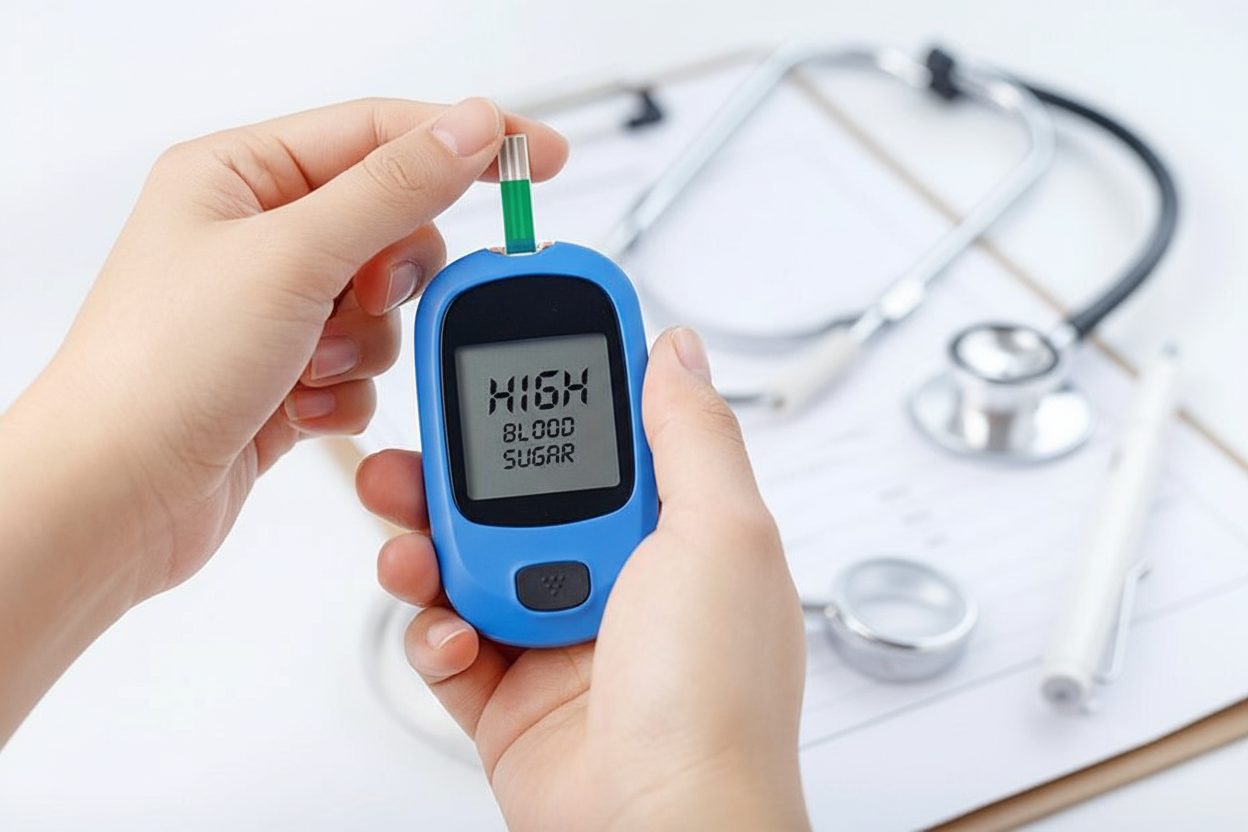
Managing diabetes doesn’t mean you have to give up fruits altogether. The key is choosing fruits that are low on the glycemic index (GI), rich in fiber, and packed with essential vitamins and antioxidants. These fruits release sugar slowly into the bloodstream, helping maintain stable glucose levels while providing essential nutrients. Here are the 10 best fruits for diabetics that you can enjoy without worrying about sudden blood sugar spikes.
1. Berries (Strawberries, Blueberries, Raspberries)
Berries are among the best fruits for diabetics because they are low in sugar and high in fiber and antioxidants. They help improve insulin sensitivity and protect against inflammation. A handful of berries can make a nutritious snack or a delicious topping for yogurt and oatmeal.
2. Apples
Apples have a low glycemic index and are rich in fiber, especially in their skin. The soluble fiber helps slow sugar absorption and improves digestive health. Eating one small apple a day can help manage blood sugar while satisfying your sweet cravings naturally.
3. Oranges
Oranges are packed with vitamin C, fiber, and antioxidants. Despite their natural sweetness, they have a low GI and help regulate blood sugar levels. Always choose whole oranges over juice to benefit from the fiber that slows glucose release.
4. Pears
Pears are high in fiber and water, which help maintain stable blood sugar levels. Their low glycemic load makes them a diabetic-friendly fruit that can aid digestion and provide long-lasting satiety.
5. Guava
Guava is an excellent fruit for diabetics due to its low GI and high fiber content. It helps regulate blood sugar and cholesterol levels. Eating guava with its skin further increases its fiber benefits, improving digestion and glucose control.
6. Kiwi
Kiwi is rich in vitamin C, fiber, and potassium. It has a moderate glycemic index and helps slow sugar absorption. The antioxidants in kiwi also protect cells from damage caused by high blood sugar, making it a great fruit for diabetes management.
7. Avocados
Although not sweet, avocados are technically fruits—and they’re a diabetic’s best friend. They are low in carbs and high in healthy fats, which help improve insulin sensitivity and balance blood sugar levels. Adding avocado to salads or smoothies helps stabilize energy and curb hunger.
8. Cherries
Cherries are packed with antioxidants called anthocyanins, which help lower blood sugar and inflammation. They have a low to moderate GI, making them a safe and healthy choice for people with diabetes. Opt for fresh or frozen cherries instead of canned ones with added sugar.
9. Papaya
Papaya has a moderate glycemic index but is rich in fiber, vitamin C, and antioxidants. It aids digestion and helps regulate blood sugar levels when eaten in moderation. A small portion of ripe papaya can be a refreshing and safe option for diabetics.
10. Grapefruit
Grapefruit is one of the best citrus fruits for diabetics. It has a low GI and contains compounds that help improve insulin resistance. Eating half a grapefruit before meals may also support weight management and better blood sugar control.
Final Thoughts
Diabetics can absolutely enjoy fruits—it’s all about making the right choices. Opt for fruits that are low in sugar, high in fiber, and packed with nutrients like berries, apples, and guava. Always pair fruits with protein or healthy fats, such as nuts or yogurt, to help slow sugar absorption and maintain steady energy levels throughout the day.
Disclaimer: This article is for general informational purposes only and should not be considered medical advice. Natural foods, herbs, and essential oils may support wellness, but results can vary for each individual. Always consult your doctor or a qualified healthcare professional before starting any new diet, supplement, or treatment, especially if you have an existing medical condition or are taking medication. The author and publisher are not responsible for any possible side effects or adverse reactions from the use of the information contained herein.
MORE FOR YOU
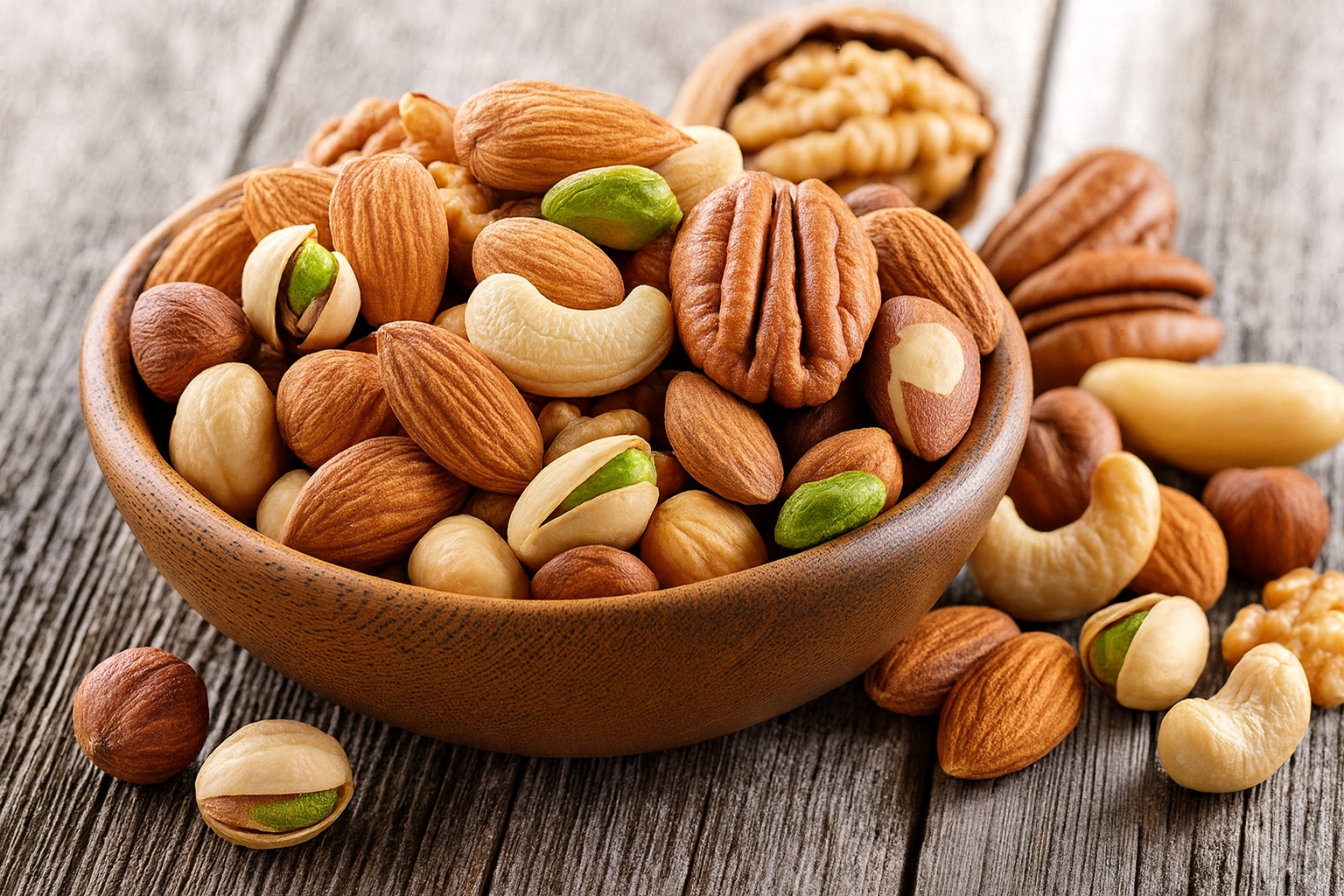
7 Magnesium-Rich Nuts and Seeds to Add to Your Diet
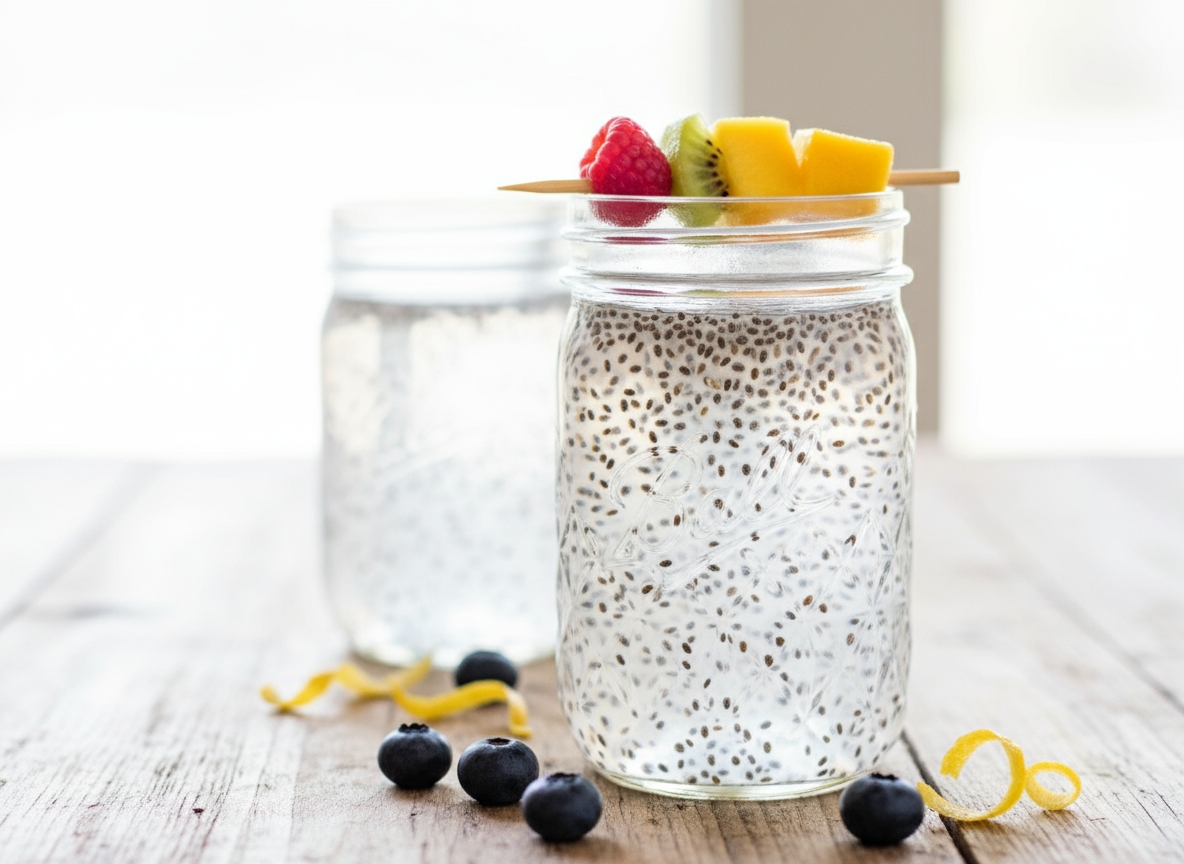
7 High-Fiber Foods That Beat Chia Seeds for Digestive Health
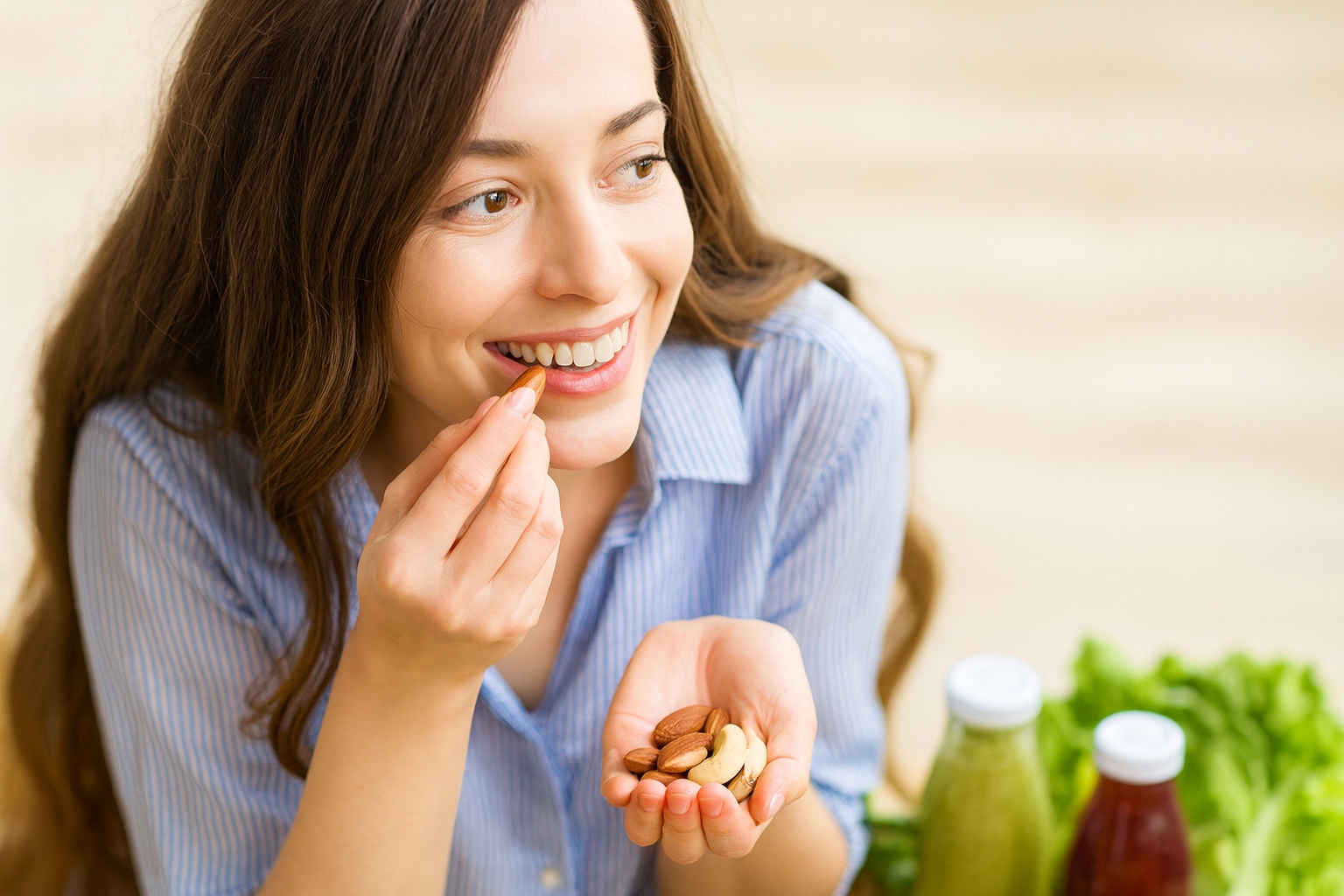
Healthy and Filling: 15 High-Protein Snack Ideas
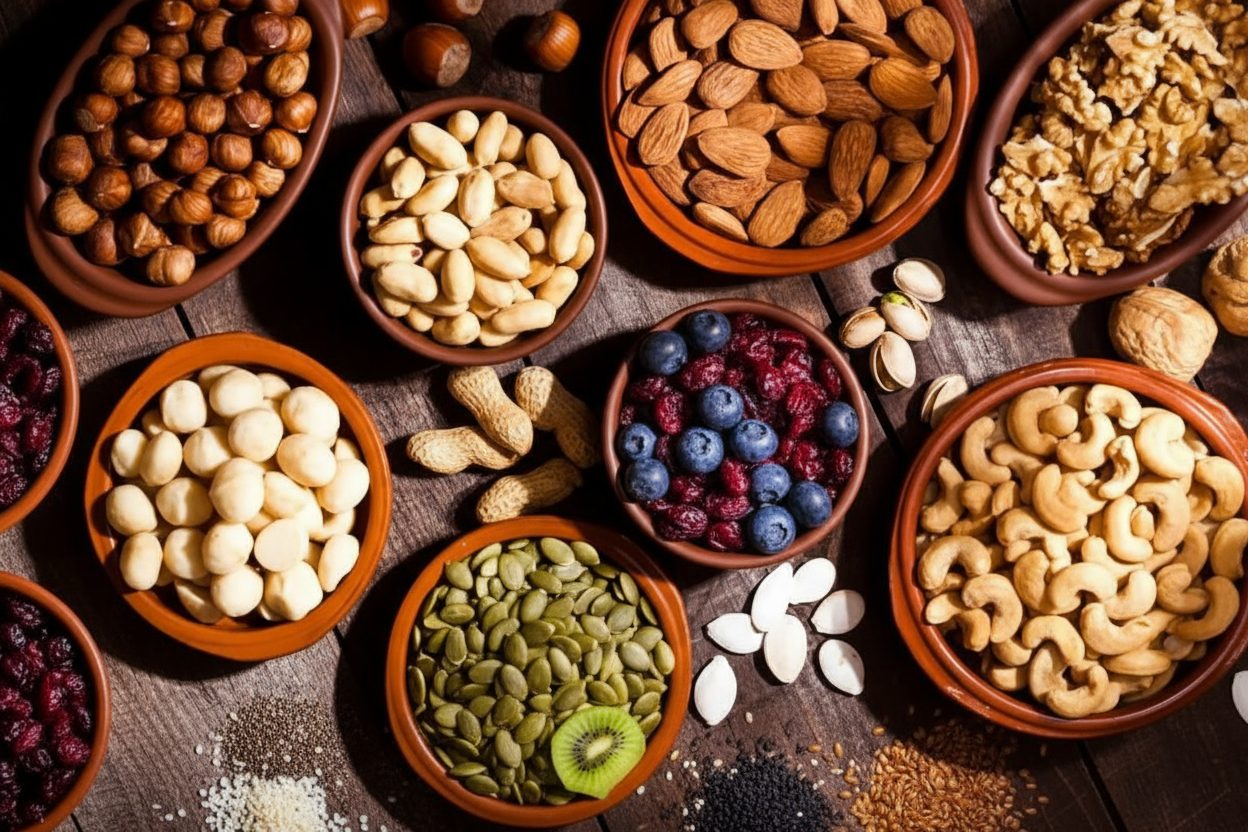
The 10 Best Protein-Rich Nuts for Energy and Satiety

The Best 10 Fiber-Rich Foods for Healthy Weight Loss
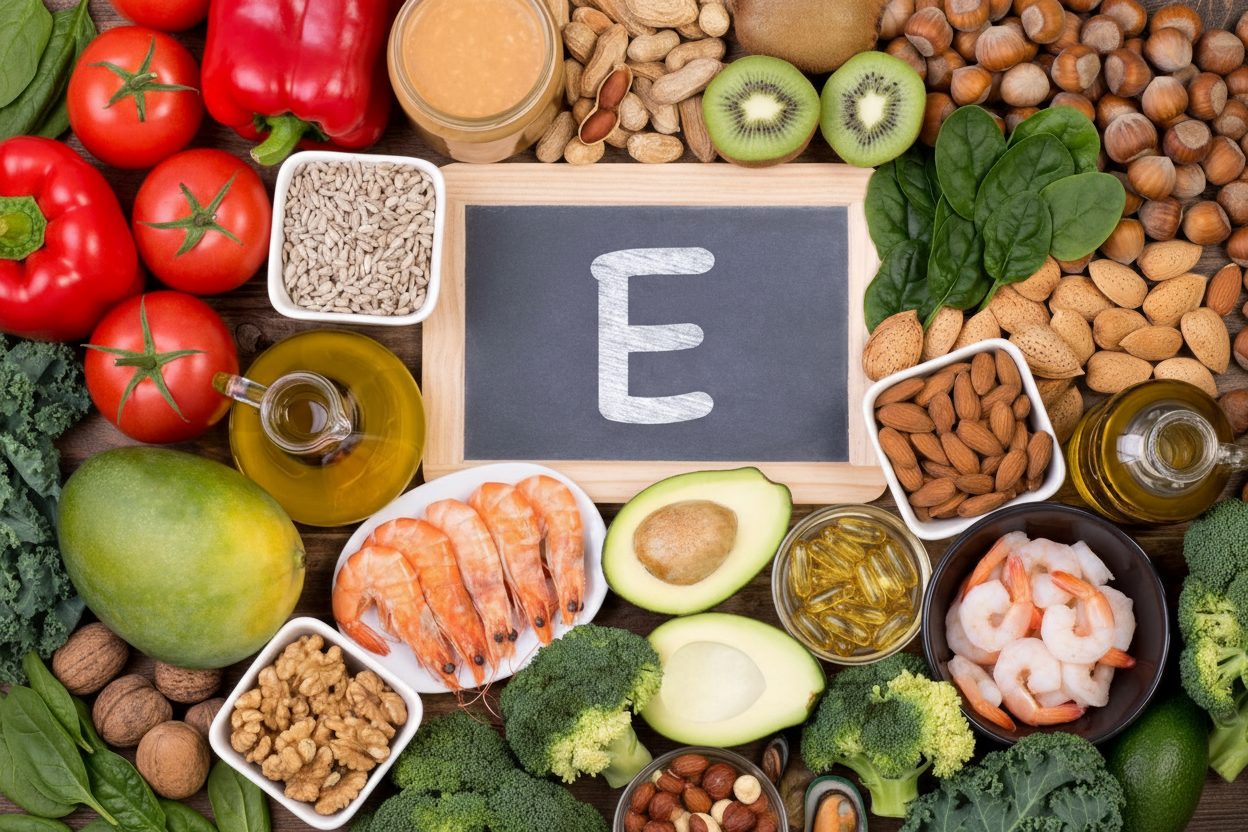
5 Nutrient-Rich Foods That Deliver More Vitamin E
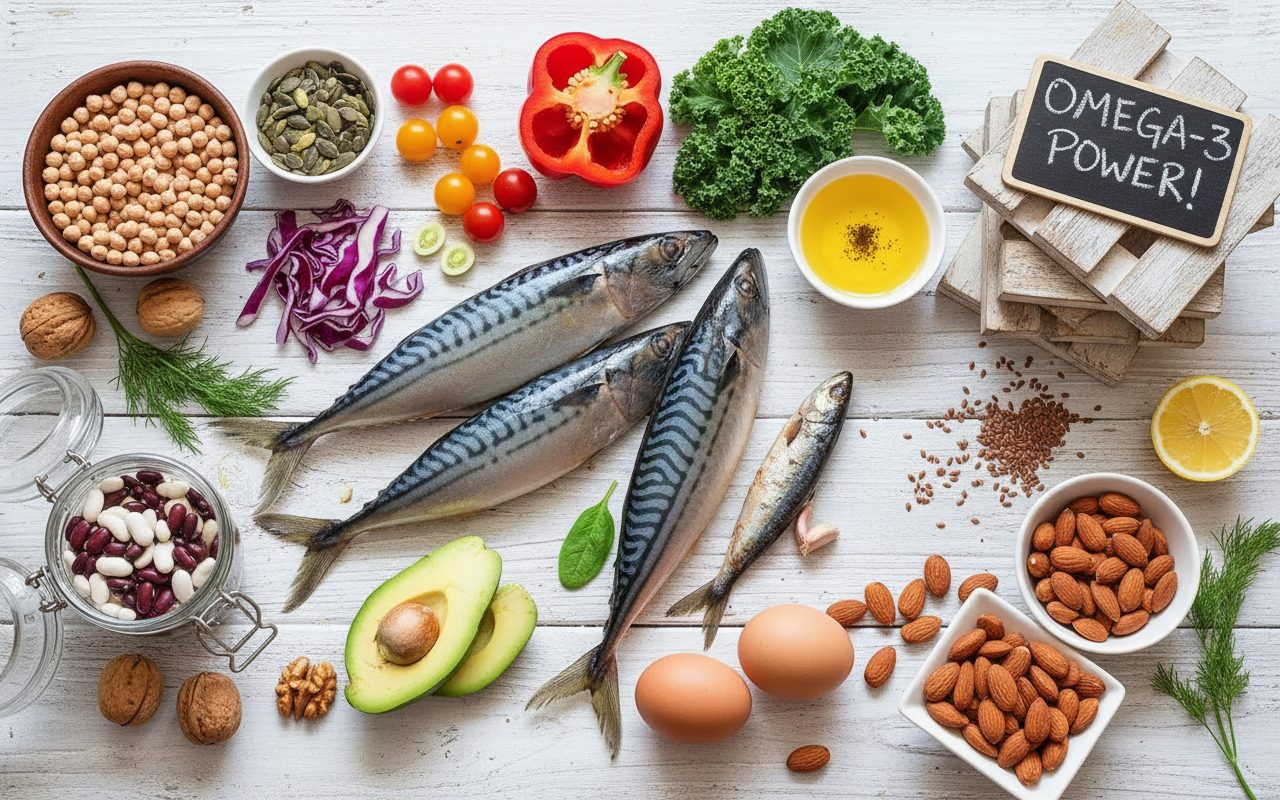
7 Nutrient-Dense Foods High in Omega-3 Fatty Acids

Smart Weight Gain: 3 Foods That Help You Build Strength

10 Nutrient-Packed Foods That Promote Hair Growth and Scalp Health
